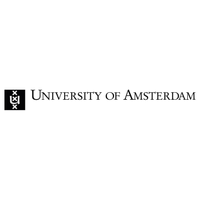PhD Position in Strategy and Innovation — AcademicTransfer

Faculty/Services: Faculty of Economics and Business
Educational level: Master
Function type: Academic Staff
Closing date: 30 April 2022
Vacancy number: 8089
Firms that are consistently successful exhibit a capability the literature calls ambidexterity: the ability to be successful in the current business environment and associated technologies, while ensuring viability in temporarily or spatially more distal business environments and/or technologies. Often these elements consist of opposing logics. However, they also create a paradox for pursuing organizations, in that, while opposed, they also provide synergetic potential. For instance, learning from radically new technological domains can have a significant impact on existing technological domains, as insights from these technologies can extend the life-cycle of existing domains and postpone their obsolescence.
A key area for future research is to study how organizations manage these strategic tensions associated with dual business models and digital transformation. For instance, how can firms compete using a traditional product business model while at the same time challenging their managers to adopt a different mindset and experiment with a platform business model? How can managers achieve a fit with the requirements of existing actors in a traditional value chain while at the same time creating a misfit by fundamentally reshaping the ecosystem by bringing in new complementors?
This project’s interest in key success factors points towards a historical perspective. As such, the utilization of objective, historical data is applicable. Searching for a setting representing a (quasi-)natural experiment is preferred to gauge causality. The learning aspect also points towards a more attitudinal perspective. This may be best served through survey research or experiments. Multi-level theorizing bottom-up and/or top-down dynamics that are beneficial or detrimental for the pursuit of competing logics is of particular interest. Ambidexterity, is, at its heart, a concept that challenges all levels of the firm from individuals, teams, departments, top-management teams, and the way organizations interface with their environment.
What are you going to do?
You will/tasks:
What do we require of you?
The PhD candidate will aim to generate research that can be published in top-tier peer-reviewed journals.
Your experience and profile:
Our offer
The compensation package is competitive at the European level and includes several secondary benefits. Favorable tax agreements may apply to non-Dutch applicants. To know more about working at the University of Amsterdam, please check this link and uva.nl/working-at-eb.
The employment contract will be for three or four years (depending on prior education) with an initial period or 18 months, with an intermediate evaluation after 18 months and a possibility to extend it for 30 months (in total four years). End-result should be a PhD thesis. An educational plan will be drafted that includes attendance of courses and (international) conferences. The gross monthly salary will range from €2.443 in the first year to €3.122 (base on 38 hours per week) in the last year. The Collective Labour Agreement (CAO) for Dutch Universities is applicable.
The intended start date is 1 September 2022.
What else do we offer
About us
UvA Economics and Business
Education and research at UvA Economics and Business (EB) covers a wide range of fields that includes economics, data science, business administration, business analytics, accountancy, control, econometrics, finance and entrepreneurship. This is organised in two Schools: the Amsterdam Business School (ABS) and the Amsterdam School of Economics (ASE). Over 7,000 students are enrolled in our UvA Economics and Business programmes and around 500 employees provide education and support.
Find more information about Economics and Business on uva.nl/eb.
Find more information about the Amsterdam Business School on abs.uva.nl.
Find more information about the Amsterdam School of Economics on ase.uva.nl.
At our Strategy & International Business section, managers in organisations are considered the central actors. One of our main areas of focus in both research and education is examining the role of business and organisations in regards to corporate governance, social responsibility and sustainability. Another increasingly important focus is digital transformation and innovation strategy. Links to data science initiatives play an increasingly important role. The section is committed to providing high-quality education at all levels, from undergraduate (BSc) to PhD level and Executive Education.
Questions?
Do you have any questions or do you require additional information? Please contact:
